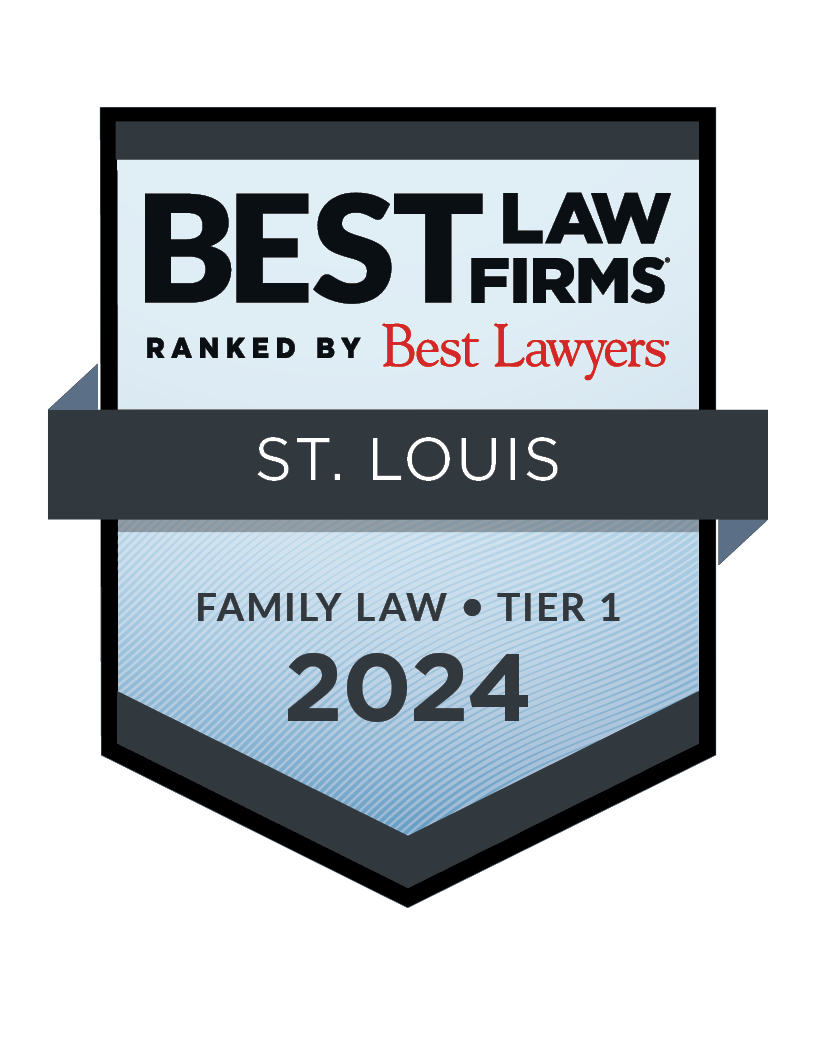415 N. Second Street, Saint Charles, MO
230 S. Bemiston Avenue, Suite 405, St. Louis, MO
Blog Layout
Preparing for Depositions
Ann Bauer • Sep 16, 2019
Both parties in a family law dispute have the right to engage in discovery which may include depositions. A deposition is a witness’s out-of-court testimony, under oath, used to gather information as part of the “discovery process,” which occurs when a case is contested and headed toward trial. If you are being deposed, the attorney for the other side will ask you questions. The person being deposed is called the “deponent.” A court reporter will be present to record the questions, your answers, and any objections made by your attorney in order to create a transcript. The transcript may be used at trial by your attorney to help provide the judge with additional evidence or by the attorney on the other side in an attempt to “poke holes” in your testimony during cross examination at trial.
Below are tips to help prepare you for depositions.
- Listen carefully to the questions you are asked. This might be the single most important piece of advice. A witness who follows this advice accomplishes many of the goals of a successful deposition. Wait until the question is finished before beginning to answer. Answer if you understand the question. Answer the question asked, and only that question. Give your lawyer the opportunity to interject an objection in a timely fashion. Let the examining attorney finish the question before the answer is given.
- Be sure you understand a question before you answer. A witness does not do anyone a favor by trying to answer a question he or she did not understand. Lawyers are fond of asking long, complex and often convoluted questions, not necessarily to confuse the witness, but often with that result. If the question is too long, contains words the witness does not understand, or just does not make sense, the witness should ask to have the question rephrased. If you do not understand the question, say so.
- Answer the questions clearly and simply. The best answer is a short one. Any question that can be answered “yes” or “no” should be. Do not delve into lengthy explanations in response to the simplest questions. This has the effect of prolonging the deposition and possibly causing the examining lawyer to inquire into areas that would otherwise have been missed.
- Answer only the question you are asked. A witness should concentrate on what the lawyer asks, and answer only that question as briefly as possible.
- Do not volunteer information, and do not guess or speculate. You are not there to tell the other lawyer your story, you are there to answer questions. Witnesses are sorely tempted to want to “get to the point”. Although a witness might believe the lawyer is either unable or unwilling to find out what he knows, the deponent should simply answer the questions asked and nothing else. If you are going to tell a story, let it be under your lawyer’s guidance in front of the Judge! Make the attorney deposing you work for the information; never give more than they ask for.
- If you do not know or recall the answer to a question, say so. Some witnesses feel they have to answer every question. The simple truth is a witness will not remember or know the answer to every question. It is perfectly acceptable to say so. In fact, it is much better for you to admit that you do not know or recall something than to guess or speculate about an answer and be wrong.
- Refer to exhibits if they contain the information necessary to answer questions. A witness is frequently asked to read, describe or interpret information that is contained within an exhibit. Take all the time that you need to read and review an exhibit. In addition, if it is necessary to refer to an exhibit to give accurate testimony, do so.
- Do not hurry. Some witnesses, anxious to have the deposition over, think they should answer questions as quickly as possible. However, answering questions too quickly causes many problems. For example, when the witness and the questioning attorney talk at the same time, it becomes impossible for the court reporter to transcribe accurately. Ironically, answering questions too quickly will likely have the effect of prolonging the deposition, not ending it. A brief pause between the end of the question and the beginning of the answer gives the lawyer time to finish the question and gives the witness time to consider the answer. If you become concerned and wish to consult with your attorney, request a break.
- Be courteous, polite and respectful. Never argue with the lawyer. Let the lawyers do the arguing. Depositions are serious business and should be treated as such.
- Tell the truth. The oath that you take at the beginning of the deposition is the exact same oath you take when appearing in Court before a judge. A witness should tell the truth, the whole truth, and nothing but the truth. Most people are not used to talking that way, but it’s the best way to avoid trouble in a deposition
If you are interested in consulting with one of our experienced attorneys at The Center for Family Law, we would be happy to sit down with you. To schedule a consultation, go here
or call (314) 721-8844.

02 Jan, 2024
Ready to start anew but feeling lost? Look no further than the Second Saturday Divorce Workshop, hosted by The Center for Family Law. This workshop will offer tools and resources for every step of the process, providing guidance on important topics such as child custody, support, and property division. Register for second Saturday 2024 now!

By Allison Gerli
•
21 Aug, 2023
Navigating family law can be a complex and daunting process. That's why the recent Missouri Bar Family Law Conference brought together Missouri attorneys in the field to share insights and best practices. Attorneys at The Center for Family Law were among the presenters and in attendance at the 23rd annual conference held in Branson, Missouri. Their presentations focused on managing client expectations, initial consultation, drafting documents, case management, and grandparent visitation, third-party custody, and guardianships. Initial Consultation & Managing Client Expectations To ensure a positive attorney-client relationship, it is crucial to establish clear expectations from the very beginning. This was the focus of Allison Gerli's presentation at the conference. Allison co-presented with Andrea Pate, a family law attorney and partner at The Law Office of the Ozarks. It is crucial for attorneys to establish a solid foundation of trust and communication with their clients from day one, as this sets the tone for the entire legal process. Allison stressed the significance of active listening and open dialogue during these initial meetings, allowing clients to express their concerns and goals. Allison's presentation also highlighted the importance of transparency in managing client expectations. Attorneys should provide honest assessments of their clients' cases, outlining both the strengths and potential challenges they may face. By setting realistic expectations from the outset, attorneys can help clients navigate the legal process with confidence and a clear understanding of what lies ahead. The presentation then shifted to the importance of talking to clients about process options. Often practitioners focus on the substance and overlook the process. Clients have options on how to resolve their disputes and this should be presented and supported by practitioners. The Center for Family Law prides itself on process options and educating clients on their options, whether that by an uncontested "kitchen table" style divorce, collaborative divorce process, mediation, or a semi-litigated case resolved through cooperative attorneys sitting down to work through issues. Case Management Case management is critical to providing quality services to family law clients. Ann Bauer's presentation at the conference provided valuable insights and best practices in this area. Ann co-presented with Kristen Siegel, a family law attorney and partner at Siegal & Irwin, LLC based in Lee’s Summit, Missouri. Kristin covered the importance of carefully drafting court pleadings. In terms of case management, Ann highlighted the importance of document organization, keeping track of deadlines, and timely communication with clients. Attorneys must keep track of deadlines, court appearances, and client meetings to ensure cases progress smoothly. Clear and frequent communication with clients is crucial. Clients want to know what is going on, and not to be left wondering. It is important to provide updates, address concerns, and gather necessary information for the client’s case. Ann also discussed the significance of effective document management as a part of case management. Maintaining well-organized and easily accessible files can streamline the legal process and ensure important documents and information are readily available. F.amily law cases are often document-heavy. Keeping documents organized in a systematic way can enable the attorney to prepare for settlement and trial Grandparent Visitation, Third-Party Custody, and Guardianships Hallie Van Duren delivered a two-part presentation on the complex legal issues surrounding grandparent visitation rights, third-party custody, and guardianships. Hallie co-presented with attorney Kristen Sparks, partner at Garnholz Sparks. Typically, guardianship cases involve neglect, abuse, or the inability of the biological parents to provide a suitable environment for a child. A guardian who is appointed by the Court steps into the role of a parent in all respects. A third-party custody action can similarly result in a third-party custodian stepping completely into the role of a parent, but, unlike in guardianship cases, third-party custody can in some circumstances result in a shared custody arrangement between biological parents and non-parents. Grandparent visitation involves much more limited court-ordered contact between a grandparent and a child or children while preserving the parental right to custody. Hallie outlined the legal standards and procedures for a non-parent to seek custody or visitation of a child in each of these types of cases, emphasizing the paramount concern of establishing and preserving the child's best interests. By exploring statutes, caselaw, and examples, Hallie’s presentation analyzed which type of action would be most appropriate in different circumstances. Over the course of her two-hour presentation, Hallie examined the complex legal balance of preserving relationships between children and grandparents or other third parties while respecting parental rights. Hallie offered practical guidance for Missouri attorneys in advising clients who are either seeking to establish grandparent visitation rights, guardianship, or third-party-custody or defend against such actions.
Want more information?

© 2024
The Center for Family Law

